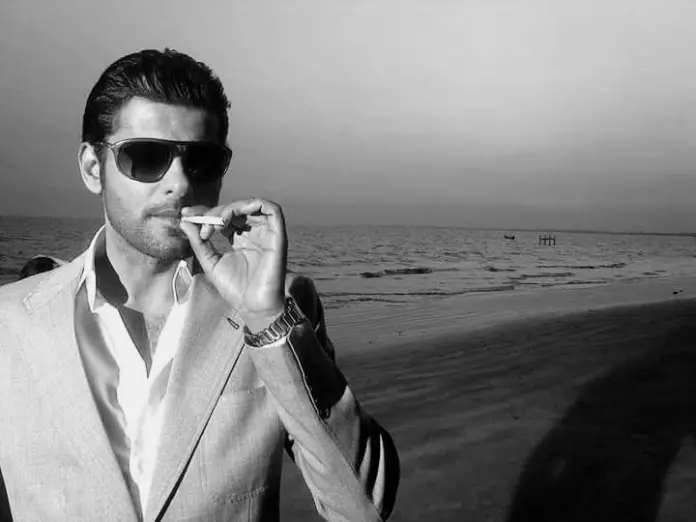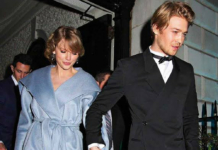Minute Mirror caught up with the model and actor, Ali Tabish to ask a few questions.
- How and when did you enter the show-business?
I was initially a passionate cricketer, but owing to a hairline fracture, my physical activity came to a halt and a friend suggested me to go for modelling instead of sitting idle. I dropped a few pictures of mine at PC for Nabeela, and received a call from Hassan Shehryar Yasin the very next day. It was a supposed to be a show for Lawrencepur, the make-up of which was being done by Khawar Riaz back in the year 2000. Meeting Khawar Riaz landed me a couple of shoots as a model accompanied by Meekal Zulfiqar, Imran Abbas and a few others, all of whom were just commencing their careers at that point in time. Then it happened that Zara Sheikh, who happened to be my colleague in the field of modeling was going to Karachi for a commercial. Being her friends, photographer Amir Chishti and I decided to accompany her. On my way to the city, I encountered Moon, a senior make-up artist at Depilex. Moon referred me to a director friend of his who was making a movie and had seen my pictures, thereby wanting to have me in the cast. That director turned out to be the popular Fahim Burney, who was making “Pyar Hi Pyar Mein”. The film became my first acting project, followed by another film which was never in the pipeline but came to me as a result of mere luck. I was standing outside Depilex with my friends when Musarrat Misbah and Mubashir Luqman came walking out of the salon. Looking at me, Mr. Luqman offered me a film right away. I gradually made it to PTV studio, where my first mentor was Mr. Sajjad Kishwar, from whom I learnt that there is no short-cut to success.
- Which was your first drama serial as an actor?
“Urte Badal” was my very first dramatic project, aired on Pakistan Television. In 2006, I did Faisal Bukhari’s “Mehndi Wale Hath” for GEO TV, which turned out to be a great success.
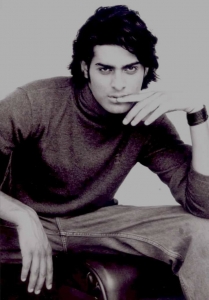
- Since you belong to Lahore, it becomes important to ask you regarding the sudden rise and fall of a Pakistani channel called ATV. Initially helmed by greats like Noor ul Huda Shah and Khalil ur Rehman Qamar, what do you think brought about the decline of that channel promising a bright future for Pakistani dramas?
A-Plus started off as a private sector. It continued to create successful dramatic productions until PTV bought its sub-branch, ATV from it. While A-Plus went to Mr. Jabbar, ATV fell into the hands of the government. Mr. Jabbar shifted the production set-up to Karachi, turning A-Plus into a successful channel.
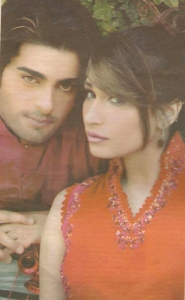
- Why is it that Karachi harbours a more glamorous and successful lot of our drama industry?
It’s the glamour itself. Honestly speaking, directors from Lahore don’t keep themselves updated with the latest trends in fashion. This is something which directors from Karachi are careful about, resulting in characters all dressed up in accordance with the modern attire. People, specifically youngsters find those characters relatable. This glamour is what lacks in Lahore and is there in Karachi, ensuing in Karachi becoming the Mumbai of Pakistani drama industry. In the kind of genre drama is, one cannot ignore the clothing and make-up. They are important elements of it.
- How has this complete shift to Karachi affected our drama industry and its actors?
Well, this has been happening before as well. Actors would keep travelling between the two cities in accordance with the projects’ requirement. But yes, there never was a gap. No one would discriminate between the Lahori lot of drama industry and the Karachi-based lot of the same industry. This gap is but a recent phenomenon. As far as the effect of this is concerned, many of our actors who belong to Lahore are living in miserable conditions. They are usually those who solely wish to work for television. Theatre, therefore, also doesn’t suffice for them.
- Knowing that there is more work in Karachi now, why haven’t you shifted from Lahore?
I don’t know why but the city doesn’t suit my temperament. Although my family lives in Karachi and I started my career from there, I have never been able to live for long in the city. I would always feel home-sick for my dwelling in Lahore. To be honest, a lot of actors who have shifted from Lahore to Karachi are living in pitiable conditions just for the sake of earning money. I can’t do that. I also can’t fulfill their demands of staying where and whenever they like. When I started my career, you could easily come back to Lahore after doing your required job. Now, the production houses want you to stay for long because they are spending a lot of money on your travelling. Therefore, they expect obedience in return. At times, they agree to give you work on the condition that you shift permanently to Karachi.
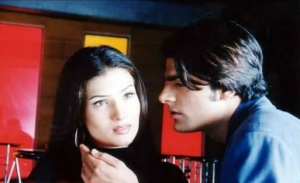
- So, while living in Lahore where there isn’t much work related to acting, how do you spend your time?
I keep myself busy with gardening. My habit of studying religions from all over the world also helps me pass my time. Besides, I have my wife and children; a complete family that takes up much of my time and attention.
- Why don’t you read books that may help you with your acting?
Acting is there before you! If you cannot pick it up yourself from your surroundings, then no book in the world can teach it to you. For actors, the world itself is a book, only if you are keen enough to observe.
- What do you think can bring back the success of PTV?
Their crew needs to adopt a responsible attitude towards work. Being government employees, they are prone to laziness. The camera-men disrespect the directors and aren’t ready to take orders. No one follows the time schedule. Shoots supposed to be starting at 3 in the noon will start at 7 in the evening. Then there are people who have no knowledge of acting, but bribe the directors with a lot of money, eventually entering the cast and ruining the project with their poor acting skills. This happens as a result of a lot of political influence on PTV. Otherwise, PTV still has a lot of money with the help of which it can revive itself. There are countless employees in PTV, some of them just receiving their incomes while sleeping at home, having nothing whatsoever to do with television and drama. These are the kind of people who have destroyed the channel. So, not one but multiple factors have brought about the destruction of PTV.
- Which is your personal favourite acting project?
There was this telefilm written by Orya Maqbool Jan which I really enjoyed doing. Other than that, “Behroopiya” written by Khalil ur Rehman Qamar for ATV is a project very close to my heart.
- What do you look for in a script when one is handed over to you?
The kind of character I’ll be playing!
- Have you ever rejected a script? If so, then why?
Yes, many times! At times, I wasn’t being paid well, and at times, the roles that were offered were such which our society doesn’t approve of. If you were to play the role of a transgender, people would start looking down upon you. I am also very particular about romantic scenes. I prefer not doing characters which demand the exhibition of a lot of intimacy. I believe that you can talk while standing at a distance. You don’t necessarily have to hug the other person on national television just to show the involvement between two characters.
- What are you currently working on?
It’s a serial called “Barish Mein Aag” for LTN Family. A few other projects in pipeline will probably be Karachi based.




